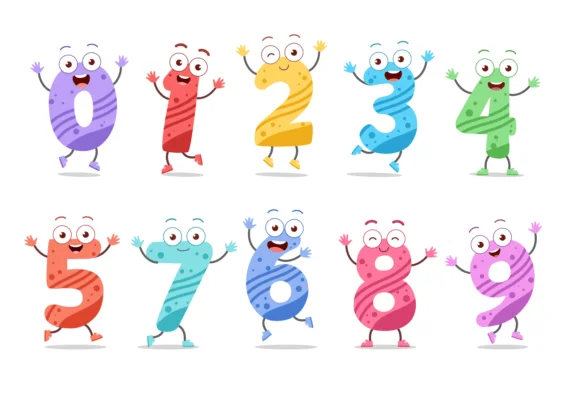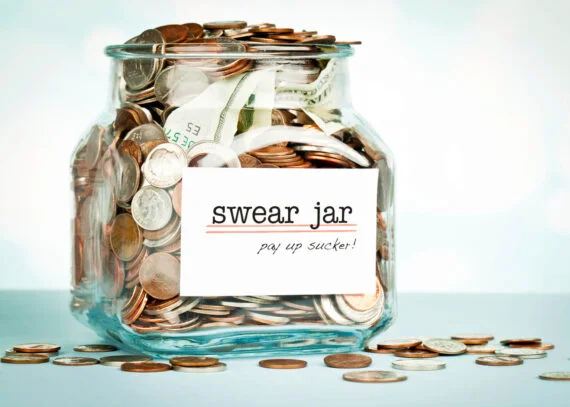Giving Compliments In Chinese: 35 Examples

Trying to impress your date? Or maybe you want to tell your friends how much you appreciate them? Learning how to give compliments in Chinese can help deepen your relationships with friends, colleagues, and even potential romantic partners.
Giving (and receiving) compliments is a straightforward affair in Western countries. In China, however, you can expect to be met with some resistance from the other side. Don’t be surprised if a person you’re trying to compliment starts deflecting your attempts of praise, and don’t let this behavior discourage you! Chinese people love compliments just as much as the next person. They are just acting modestly.
Let’s discover all the different ways you can compliment someone in Mandarin Chinese. We’ve included both pinyin and traditional characters in these examples to make your journey to fluency that much easier.
General compliments in Mandarin Chinese
Let’s start with some basic expressions before getting to those more specific, flowery compliments. These are some of the most common Chinese phrases you can use to show someone how much you like and appreciate them. Keep in mind that often people negatively respond to the received compliment because it is considered impolite to accept flattering remarks.
1. 你太棒了 – Nǐ tài bàng le
Telling someone 你太棒了! (Nǐ tài bàng le!) is a surefire way to get on their good side. It is the most common Chinese sentence structure, and in English, this phrase translates to “You’re cool/awesome/amazing!”
A characteristic response in this situation would be 真的吗? (zhēn de ma?) or 没有没有 (méi yǒu méi yǒu.) Both of these phrases are used to express humility and signify that your relationship is on a good track.
2. 你真牛逼/B – Nǐ zhēn niúbī/B
Another great way to tell your friends that they’re “Freaking awesome” or “Badass” is to use 你真牛逼 (nǐ zhēn niú bī.) Be wary, though! This colloquial term is slightly vulgar and could put you in an uncomfortable situation if used with someone you don’t know very well. But, of course, an exception can be made when talking to really close people.
The reason for this is that the term 牛逼 (niú bī) means “cow’s vagina” in English and can be regarded as a cuss word. We won’t get into specifics on why referring to someone as bovine genitalia is cool, but we will warn you to use it wisely.
3. 你/您真了不起 – Nǐ/Nín zhēn liǎobuqǐ
Did someone do you a huge favor? You can thank the person by telling them how terrific they are! The word (nín) is a more formal version of 你 (nǐ) and is usually used to refer to elders or superiors. You can also use other personal pronouns such as 他/她 (tā,) and other specific names. A habitual compliment in Chinese, 你真了不起 (nǐ zhēn liǎobùqǐ) helps to express gratitude in a polite and friendly manner.
If you wish to learn what a good answer would be in this situation, be sure to note the many different ways to say “thank you” in Mandarin Chinese.

4. 我好喜欢你啊 – Wǒ hǎo xǐhuan nǐ a
If you want to tell someone you like them, just use “我好喜欢你啊!” (wǒ hǎo xǐ huān nǐ a!) Context matters here; Do you like them as a friend? Or maybe something more than that? It might be a good phrase to use when testing the waters and seeing if they feel the same way.
You’ll notice that in Chinese, even the onomatopoeia sounds (ah, hey, ha,) are written using both characters and pinyin.
5. 你对我真好 – Nǐ duì wǒ zhēn hǎo
One of the best ways to show your appreciation is to acknowledge when people treat you well! You can use 你对我真好! (nǐ duì wǒ zhēn hǎo!) when a friend treats you to a coffee or surprises you with a gift.
Even in this situation, you probably won’t receive a simple “thanks” as a reply; it’s more likely that your complimented friend will try to deflect the praise due to modesty. The best you can hope for is 过奖 了 (guò jiǎng le,) which is a favorite deflect tactic.
6. 我为你感到骄傲 – Wǒ wèi nǐ gǎn dào jiāo’ào
Friendships are built on mutual support and encouragement. Acknowledging people’s accomplishments can go a long way. Tell your Chinese friends you’re proud of them by exclaiming 我为你感到骄傲! (wǒ wèi nǐ gǎn dào jiāo’ào!)
If they respond by deflecting your flattery, try not to be annoyed. Accepting compliments can be a complete nuisance in China, so keep in mind that your message is received and appreciated.

Complimenting someone’s appearance
Have your heart set on someone special? Then, it’s time to bring out the big guns! There are numerous ways to compliment someone’s appearance in Mandarin Chinese – from telling them they’re pretty or handsome to pointing out their new haircut. By the end of this section, you’ll be able to hand out compliments like a native!
7. 你很漂亮 – Nǐ hěn piàoliang
By far, the most typical way to say “You are beautiful” in Chinese is to use 漂亮 (piàoliang). This phrase won’t score you some massive points as it’s quite generic, but it’s definitely a good start. Many people use it as a way of saying, “You look amazing/great today.”
8. 你好美哦 – Nǐ hǎo měi o
美 (měi) and 漂亮 (piàoliang) both mean “beautiful” in Mandarin. If you want to know how to compliment a girl in Chinese, you use 美女 (měinǚ), which pretty much translates to “beautiful girl” in English.
Remember that the sounds “ǚ” and “u” are pronounced differently in Chinese and won’t be spelled the same way when using a pinyin keyboard. The solution is easy, though – to type the “ǚ” sound, use “v” instead of “u”!
9. 你好帅 – Nǐ hǎo shuài
Women are not the only ones who thrive off of compliments! When you want to say “You are very handsome” in Chinese, your best bet would be to use 帅 (shuài). The word means “handsome” in English and is one of the most common compliments in Chinese culture aimed at men.
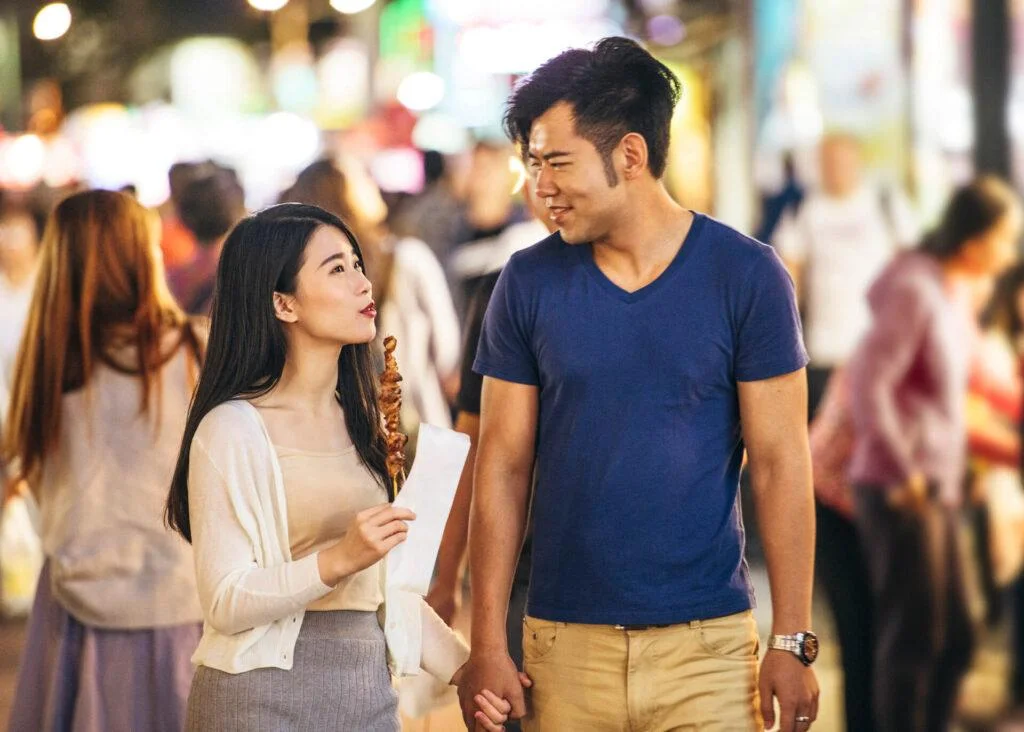
10. 你真可爱 – Nǐ zhēn kě’ài
可爱 (kě’ài), meaning “cute,” is quite versatile and can be used in plenty of situations. For example, met a cute lady? 可爱. Saw an adorable baby? 可爱. Is your friend showing you some photos of their son and daughter on her phone? You get the gist.
This phrase can be used despite the person’s age and is one of the most typical ways to say you find something endearing. So if you hear someone calling you cute, don’t worry! The best responses are pretty simple and easy to learn. 过奖 了(guòjiǎng le) is an excellent example of a proper response, as well as a sign that you pay attention in Chinese class.
11. 你的眼睛很迷人 – Nǐde yǎnjīng hěn mírén
Eyes are the window to the soul, but compliments are the window to the heart! If you’re feeling bold, lean in really close and tell a woman, you find her eyes mesmerizing. 你的眼睛很迷人 (nǐde yǎnjīng hěn mírén) will surely earn you some brownie points. Or a trip to the hospital if her boyfriend is nearby!
12. 穿衣服真配(你) – Chuān yīfú zhēn pèi (nǐ)
Not every compliment needs to be an attempt to woo someone. If you’re learning Chinese for the first time, the sentence 穿衣服真配你! (chuān yīfú zhēn pèi nǐ!) might sound as “You look good wearing clothes.” In reality, the equivalent in Western countries would be more similar to “These clothes suit you well!”. The 你 nǐ (“you”) is in brackets because you can drop it if you like.
13. 你怎么那么有型 – Nǐ zěnme nàme yǒuxíng
Do you know someone who’s always well-dressed? Make a fashionista’s day by praising their style. The expression 你怎么那么有型!? (nǐ zěnme nàme yǒuxíng!?) has a surprising tone and can be interpreted as someone asking, “How are you so stylish!?”
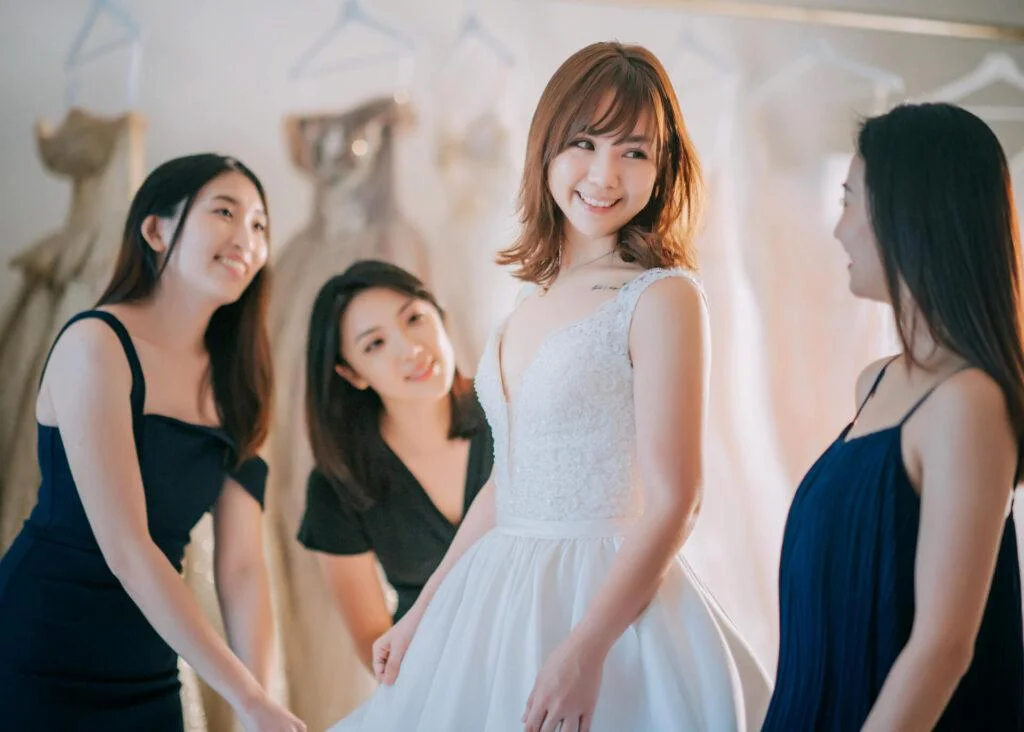
14. 你好优雅啊 – Nǐ hǎo yōuyǎ a
Similar to the previous one, pointing out that someone is 优雅 (yōuyǎ) or “elegant” could help improve your social relationships. The term can be used in various situations, from commenting on someone’s sense of style to pointing out their graceful demeanor.
15. 这颜色很适合你 – Zhè yánsè hěn shìhé nǐ
“This color suits you well” or 这颜色很适合你 (zhè yánsè hěn shìhé nǐ) is another popular compliment in Chinese. It’s a fun and interesting way to bring attention to their outfit. Bonus points if you add that the color of their shirt makes their eyes pop!
16. 你今天的气色不错 – Nǐ jīntiān de qìsè bùcuò
In Chinese, the word 气色 (qìsè) translates to “complexion” or “color.” While to Westerners it might seem strange to comment on someone’s skin tone, in China, 你今天的气色不错 (nǐ jīntiān de qìsè bùcuò) simply means that you look good, rested, and healthy.
不错 (bù cuò) is an adjective used on an everyday basis and means “good.”
17. 你今天看起来超有精神的 – Nǐ jīntiān kànqǐlái chāo yǒu jīngshén de
You know those people who light up the room the moment they step into it? Well, make sure they know it too by saying how vibrant they look! 你今天看起来超有精神的! (nǐ jīntiān kànqǐlái chāo yǒu jīngshén de!) is a simple yet interesting way to compliment a friend or acquaintance.
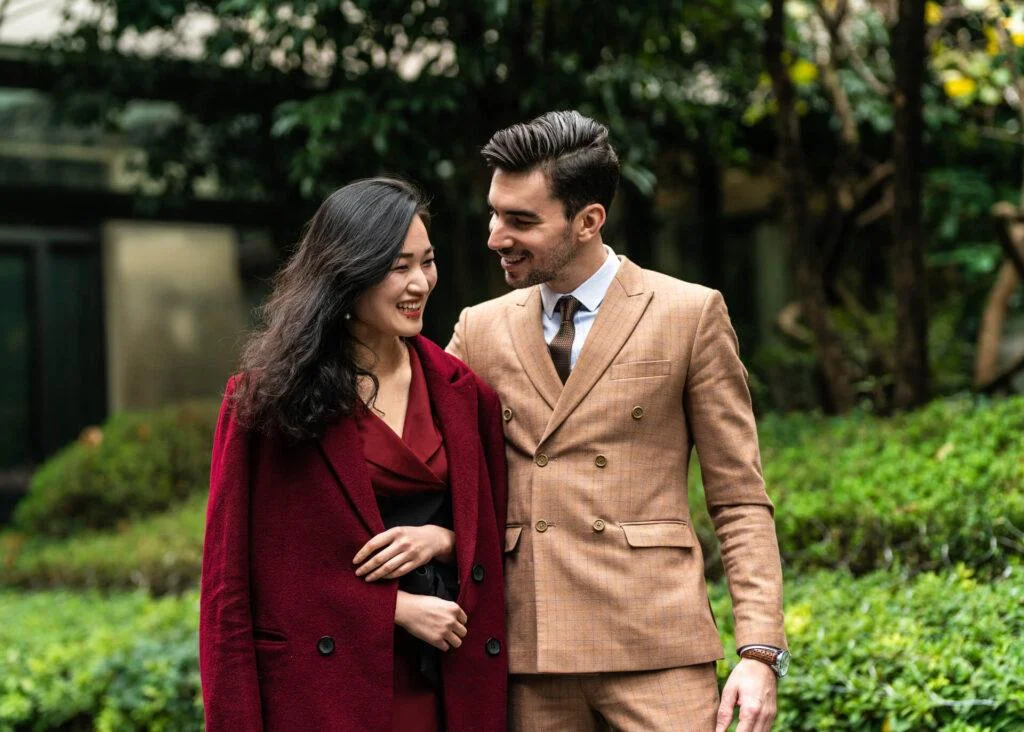
18. 你今天的妆容好精致啊 – Nǐ jīntiān de zhuāngróng hǎo jīngzhì a
There’s always that one person whose makeup is on-point at any time of the day. 你今天的妆容好精致啊! (nǐ jīntiān de zhuāngróng hǎo jīngzhì a!) is an effective sentence with a pretty easy structure.
The adjective 精致 (jīngzhì,) in other words, “fine/exquisite,” can be used to comment on someone’s hairstyle and appearance, but also speech, a specific skill or anything else.
19. 才貌双全 – Cáimào-shuāngquán
Have you ever met someone stunning, charming, intelligent, funny? You know, the whole package? Well, this idiomatic expression is great for situations like those!
The noun 才貌 (cáimào) refers to both someone’s appearance and talents, while the verb 双全 (shuāngquán) means “possessing both.” Put it all together, and you got yourself “A person endowed with both beauty and talent” – in other words, a total knockout.
20. 玉树临风 – Yùshù línfēng
If a Westerner said you were like a “Jade tree in the wind,” you’d probably stare at them in confusion and slowly back away. Things work a bit differently in China, though. Somewhat obscure, the idiom 玉树临风 (yùshù línfēng) is often used to compliment young men on both their physique and character.

Complimenting someone’s personality
Beauty is only skin deep, and we all know that it’s what’s inside that counts. Praising people’s personalities and behavior could set you apart from others. Here you’ll learn a few different ways to compliment someone’s nature and characteristics by exploring common words and examples often used by professional teachers.
21. 你很幽默 – Nǐ hěn yōumò
Having a good sense of humor is a great personality trait. If you know someone who constantly cracks jokes and makes you laugh, be sure to tell them 你很幽默! (nǐ hěn yōumò!)
Your friend will be prepared to respond by making a self-deprecating joke, so stay cool and watch them get flustered.
22. 你很有天赋 – Nǐ hěn yǒu tiānfù
Is your friend a math wiz? Or maybe they’re good at drawing or playing sports? Complimenting a person’s talents by using 你很有天赋! (nǐ hěn yǒu tiānfù!) is a good way to acknowledge their abilities and make them feel better.
Being called “talented” is always welcome, especially if someone works day and night to improve their skills.
23. 你真聪明 – Nǐ zhēn cōngming
Being told that “You’re smart” is probably one of the best compliments you could receive. Who doesn’t like feeling like a genius? The Chinese expression 你真聪明! (nǐ zhēn cōngming!) can come in handy when one of your friends scores high marks on a test or comes up with another brilliant idea.
24. 你很有气质 – Nǐ hěn yǒu qìzhì
In English, it’s not very common to comment on someone’s temperament (unless they’re being overly rowdy, that is). However, in Chinese, complimenting a person’s good temperament or 气质 (qìzhì) is similar to telling them you like their vibe.

25. 你是独一无二的 – Nǐ shì dúyī-wú’èr de
The compliment 你是独一无二的 is best used for those special people in your life, the ones that put a smile on your face even when you’re having the worst day. They deserve to be recognized.
The phrase means “unique” in two different ways: 独一 (dúyī) or “alone one,” and 无二 (wú’èr), meaning “no second one” – in essence, “You’re one of a kind.”
26. 你真够朋友 – Nǐ zhēn gòu péngyǒu
A friend in need is a friend indeed! Showing admiration in everyday life is the key to maintaining good social relationships. 你真够朋友! (nǐ zhēn gòu péngyǒu!) means “You’re such a good friend” and can be used in different settings.
It is an example of an easy sentence that’s easy to pronounce and can be mastered in less than five minutes! Just make sure to watch the tones and pay attention to pinyin.
27. 是你让我想成为一个更好的人 – Shì nǐ ràng wǒ xiǎng chéngwéi yī gè gèng hǎo de rén
Have you ever met someone who makes you want to be a better person? Well, the compliment 是你让我想成为一个更好的人! (shì nǐ ràng wǒ xiǎng chéngwéi yī ge gèng hǎo de rén!) allows you to tell them exactly that. It might not be the best example for beginners, but it’s a great way to flatter someone in Mandarin.
A helpful tip would be to practice pinyin before reading the characters. Fortunately, numerous videos and articles explain the basic pinyin rules. Look it up on your phone whenever you have any doubts, and you’ll master the language in no time.
28. 你在我心中是最完美的 – Nǐ zài wǒ xīnzhōng shì zuì wánměi de
If your friend is feeling particularly low or insecure, the phrase 你在我心中是最完美的! (nǐ zài wǒ xīnzhōng shì zuì wánměi de!) will surely make them feel good. While the literal English translation might sound a bit jumbled, it means “(In my heart) you are perfect!”
29. 谦谦君子 – Qiānqiān jūnzǐ
When you meet a guy who’s a true gentleman, remember the phrase 你真谦谦君子! (nǐ zhēn qiānqiān jūnzǐ!)
If you’re just starting to learn Chinese, you’ll notice a lot of reduplicated words, such as 谦谦 (qiānqiān). Reduplication of words and adjectives is a common feature in Chinese and is used to add emphasis and soften the tone of expression.

Complimenting someone’s skills
Giving someone a sincere compliment on their skills can boost their confidence and encourage them to work even harder! Use these expressions freely around the workplace and with your loved ones. These work in multiple settings and can be used to tell someone they sing well, speak a language fluently, or are masters of their craft.
30. 干得漂亮 – Gàn de piàoliang
You already learned that 漂亮 (piàoliang) could be used to say “You’re pretty” in Chinese. But did you know you can use the exact words to tell someone they’re doing a great job? 干得漂亮! (gàn de piàoliang!) means “Beautiful work” or quite simply “Good job!”
31. 好主意 – Hǎo zhǔyi
Did your coworker come up with another clever idea? Show your interest by complimenting their wits and saying 好主意! (hǎo zhǔyi!) It is an excellent example of a simple term that will make you sound like you speak Chinese like a pro.
32. 你很专业 – Nǐ hěn zhuānyè
Handling business in China can be an ordeal. Impress your colleagues and clients by telling them how professional they are by stating 你很专业 (nǐ hěn zhuānyè.) If you just started learning Chinese, this will surely score some points with your boss.

33. 我对你的工作表现很满意 – Wǒ duì nǐ de gōngzuò biǎoxiàn hěn mǎnyì
This particular phrase comes especially handy in the office. For example, expressing gratitude for their hard work and saying you’re satisfied with their performance can be done with 我对你的工作表现很满意 (wǒ duì nǐ de gōngzuò biǎoxiàn hěn mǎnyì.) Best used for someone working below you, as opposed to a colleague.
34. 你做饭好棒啊 – Nǐ zuòfàn hǎo bàng a
Did someone prepare a tasty meal for you? Is the table filled with all kinds of different specialties that you can’t wait to eat? Show your gratitude by expressing amazement for their cooking skills! Food plays a vital role in Chinese culture, so saying 你做饭好棒啊! (nǐ zuòfàn hǎo bàng a!) could make a world of difference.
35. 你是大家的楷模 – Nǐ shì dàjiā de kǎimó
There’s always that one person that everyone looks up to; someone who has all the answers. So reminding them that they’re everyone’s 楷模 (kǎimó) would be the same as telling them that they’re everyone’s role model. Not only will this make them feel good, but you’ll undoubtedly sound like you’ve been speaking Mandarin since you were born.
Congrats! You’re now able to someone in Chinese in 35 different ways; 你真聪明 nǐ zhēn cōngming
Practice these phrases the next time a good-looking lady crosses your path or a coworker invites you to a business lunch. But don’t tell your colleagues 你的眼睛很迷人 (nǐde yǎnjīng hěn mírén) –unless you want to take a trip to the HR office.







